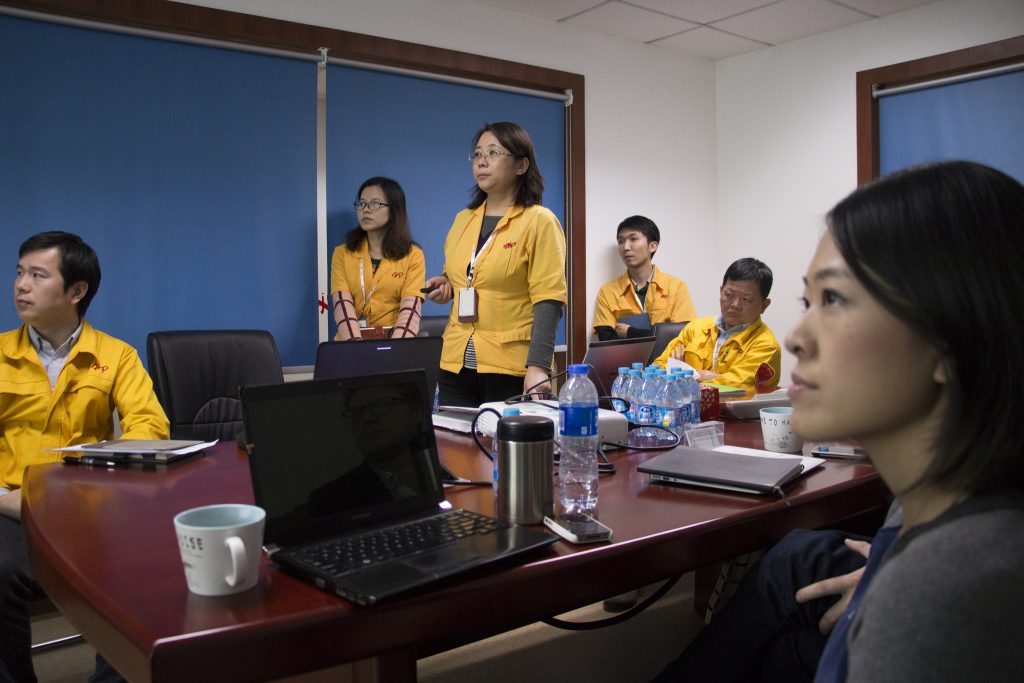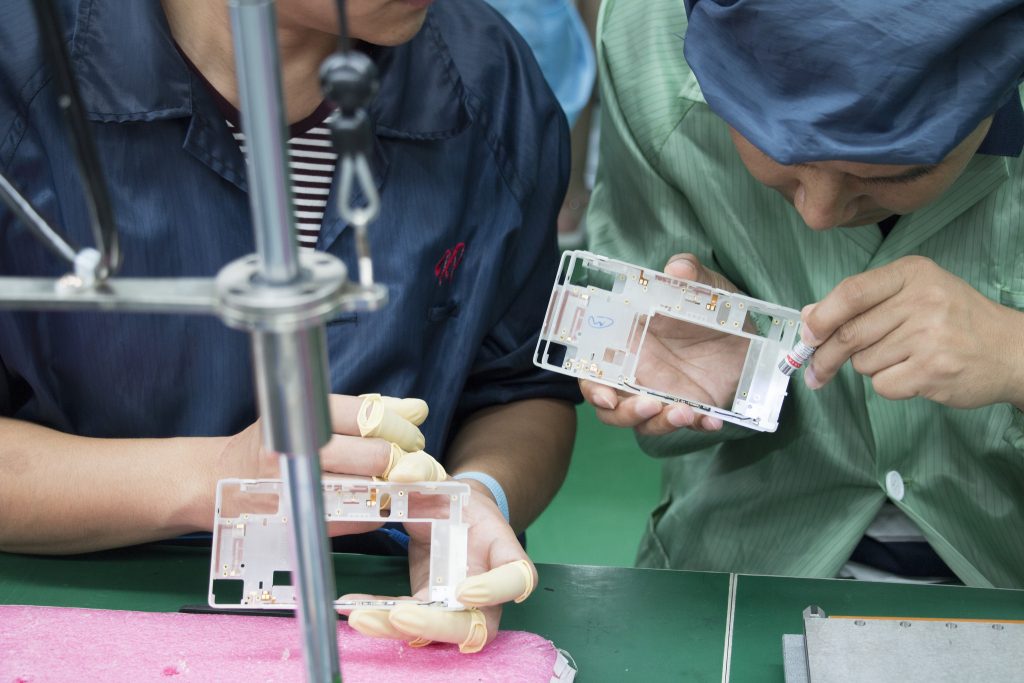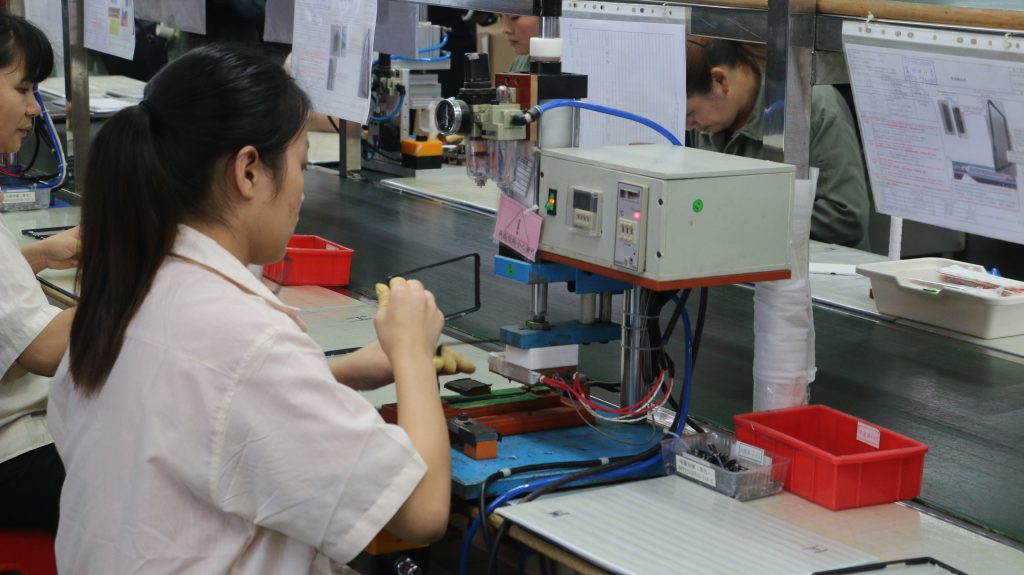Originally published at: https://www.fairphone.com/en/2019/03/27/worker-satisfaction-starts-with-talking-to-factory-employees/
Electronics supply chains contain a seemingly endless number of steps — creating a complete disconnect between the people who make products and the people who use them. When it comes to smartphones, the vast majority are manufactured in China. But the country’s fast, affordable production often comes at a cost to workers. We want to improve working conditions at the heart of the electronics sector – for the people involved in making our phones, including the employees working at the assembly lines.
When you’re attempting something completely new, you don’t always get it right the first time. That’s simply the nature of what we do at Fairphone – we’re always learning, adjusting and improving as we go. Our updated approach to worker welfare is the result of that exact process. Based on what we’ve learned over the past few years from developing our worker welfare program with selected partners, we’ve now refined our approach to focus more heavily on worker satisfaction and building a strong business case with our partners.
Better for employees, …
It might seem obvious, but after some trial and error, we think we’ve discovered the best way to uncover the most urgent improvements: We ask the factory employees themselves! To better understand their perspectives and set a baseline for improvement, we use worker surveys and dialogue sessions to gather insights on how satisfied the employees are with current working conditions. It gives them the opportunity to (anonymously) reveal what they care about most and share suggestions for changes.
We’ve come a long way since the first discussions of the worker welfare fund in 2014.
With this feedback, we can identify the key issues and drivers for worker satisfaction, and put together a joint program for improvement. The specific program details and implementation timelines are different for every partner we work with, but could include everything from reducing overtime hours and expanding lunch options to improving dorm facilities.
… better for business
We think that improving working conditions is intrinsically important, but we also believe that it just makes good business sense. Therefore, as part of our revised approach, we work closely with our partners to clearly present the business case for worker satisfaction.
Many of the business-related benefits are directly tied to worker retention. Happy employees stay at their jobs longer, which leads to lower recruitment and training costs. High retention rates are also linked to increased productivity and profits, better quality work and fewer manufacturing defects.
Our updated worker welfare approach: Better for employees, better for business.
Establishing the business case creates a stronger sense of ownership and shared values, which is crucial for the long-term success of these projects. And as part of our collaborative, mutually beneficial approach, Fairphone and our partners co-invest in the worker satisfaction improvement plans.
A scalable model for future partnerships
So how is this different than our previous approach? Our goals for good working conditions haven’t changed, but after learning some lessons the hard way, we’ve simplified how we structure our projects. For example, we no longer create a registered fund to finance the projects, which caused unforeseen legal and banking challenges.
This new, more streamlined way of working gives us more time to focus on worker satisfaction, instead of getting bogged down by processes. It also represents the evolution we’re undergoing with all of our impact projects: Instead of creating one-off initiatives that are difficult to repeat, we want to develop models that can easily be replicated and scaled up – by Fairphone and anyone else in the electronics industry.
Focussing on what really matters: Worker satisfaction.
We’re looking forward to telling you more about our worker welfare projects and what we’re doing in the factories and beyond. In the coming months, we’ll introduce you to some of our partners and share stories about putting our improvement plans into action.
In the meantime, have a look at our fair working conditions timeline to see how we’ve been making a positive impact at the heart of the electronics sector.




